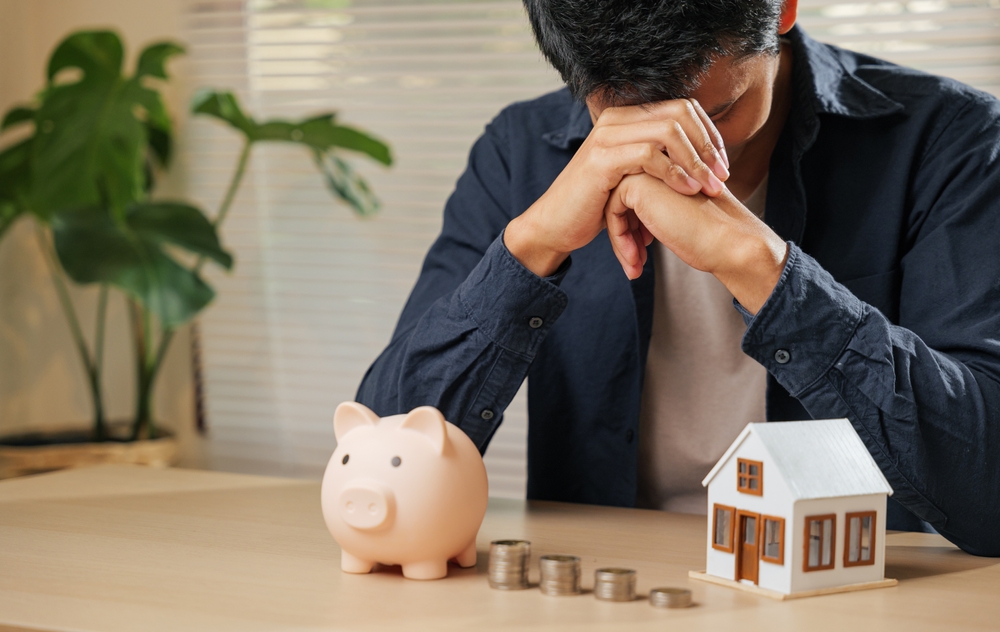
Buying a home is one of the biggest financial decisions most people ever make—but emotions can easily cloud logic when competition is fierce. Many buyers fall in love with a property and rush to bid high, only to discover later that they paid far more than the home was actually worth. Knowing how to recognize the red flags before you sign can save you tens of thousands of dollars. If you learn to spot the warning signs that you’re about to overpay for a house, you’ll protect both your finances and your peace of mind.
1. You’re Caught Up in a Bidding War
When the housing market heats up, it’s easy to get swept into bidding wars that make you overpay for a house. Competing buyers can create emotional pressure that drives prices beyond reason. Sellers benefit most from this frenzy, while buyers often stretch their budgets past comfort levels. Before joining a bidding battle, ask yourself if the property truly justifies the extra cost or if you’re simply chasing the win. Setting a strict budget—and sticking to it—can prevent you from paying more than the home’s actual value.
2. The Listing Price Is Way Above Comparable Sales
One of the clearest indicators that you might overpay for a house is when the listing price doesn’t align with local comparables. “Comps” refer to similar homes recently sold in the same neighborhood, adjusted for size and features. If the asking price is significantly higher than the average sale price, that’s a red flag. Some sellers overprice intentionally, hoping to catch an eager buyer who won’t question it. Always review at least three recent sales in the area to ensure you’re paying market value, not the hype value.
3. The Home Has Been Sitting on the Market Too Long
If a property has been listed for months with no offers, it often signals something off—either with the price, the condition, or the neighborhood. Sellers who refuse to adjust a high price may eventually lure buyers into thinking they’re getting a deal when they’re not. In reality, a stale listing can mean the home was overpriced from the start. Buyers who overlook that history risk paying full price for a home others already passed on. Doing your research into the home’s listing timeline can help you avoid this trap and avoid overpaying for a house.
4. The Seller or Agent Pressures You to Skip the Inspection
When sellers push buyers to skip inspections, it’s a major red flag that you may overpay for a house with hidden problems. Inspections reveal issues like foundation cracks, roof damage, or faulty wiring that could cost thousands in repairs. Waiving this step just to close faster or win a bidding war could leave you with major expenses down the line. Even new construction homes can hide costly defects. Always insist on a thorough inspection—it’s the best way to know if the asking price matches the home’s true condition.
5. The Neighborhood Doesn’t Support the Price Tag
Sometimes the house itself looks amazing, but the surrounding area doesn’t justify the cost. You might love the finishes and layout, but if nearby homes are smaller or older, the resale value could stall. Paying top dollar in an underdeveloped area is one of the easiest ways to overpay for a house. Location impacts appreciation more than design, so you want a neighborhood where property values are trending upward. Always research local schools, businesses, and infrastructure before committing to a price that doesn’t fit the area.
6. You’re Letting Emotion Drive the Decision
Falling in love with a home can be dangerous for your wallet. When buyers picture raising a family or hosting holidays in a dream space, they often justify paying more than planned. Emotional buying makes it easy to overlook flaws, inflated prices, or poor resale potential. Real estate agents and sellers know this and may subtly encourage urgency to keep emotions high. Taking a step back to evaluate with logic—and not heart—can keep you from overpaying for a house you might later regret.
7. You’re Ignoring Future Costs and Taxes
Even if the mortgage fits your budget now, overlooking future expenses is another way buyers overpay for a house without realizing it. Property taxes, insurance premiums, and utility bills can increase dramatically, especially in high-demand areas. Older homes may also require costly upgrades like new plumbing, HVAC systems, or roof replacements. A good deal isn’t just about the purchase price—it’s about total ownership costs over time. Estimating these expenses upfront ensures your dream home doesn’t become a financial drain later.
Knowing When to Walk Away Saves More Than Money
Recognizing the warning signs before you overpay for a house can make all the difference between a smart investment and a financial setback. Sometimes the best decision a buyer can make is to walk away and wait for a better opportunity. A home should add stability and comfort, not stress and regret. When you approach the process with patience, data, and discipline, you gain leverage instead of losing it. Remember, the right home at the right price will always be worth the wait.
Have you ever felt pressure to overpay for a house? What strategies helped you stay within your budget? Share your experience in the comments below!
What to Read Next…
Big Regrets: 7 Immediate Regrets Of Buying A New Home
5 Times You Should Renovate Your Home and 5 Times You Should Absolutely Sell It
10 Outrageous Costs of Ignoring Small Home Repairs
Why Do Some People Treat Home Equity Like Cash
6 Expenses That Quietly Multiply After Buying a Home
The post 7 Signs You’re About to Grossly Overpay for a House appeared first on The Free Financial Advisor.







